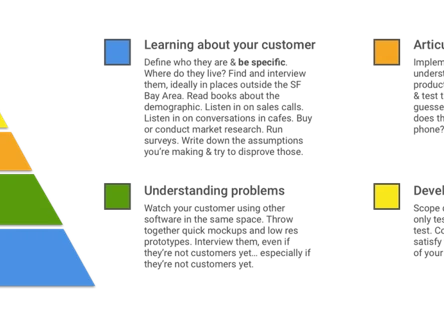Have you ever experienced a gut feeling or a sudden knowing that guided you to make a decision? Intuition is a fascinating phenomenon that has puzzled scientists and philosophers for centuries. It is that inexplicable sense of knowing or understanding something without relying on conscious reasoning. But what is the science behind intuition? How does it actually work? In this article, we will delve into the intricacies of intuition and explore the various factors that contribute to its workings. From the neuroscience behind instinctive processing in the brain to the role of gut bacteria in our intuitive abilities, we will unravel the mysteries and uncover the fascinating science behind intuition. So, let’s dive deep and understand the inner workings of this enigmatic and powerful human ability.
Contents
- What is Intuition?
- The Neuroscience of Intuition
- The Gut-Brain Connection
- Intuition and Pattern Recognition
- Social and Emotional Cues
- Intuition and Experience
- Scientific Studies on Intuition
- Controversies and Limitations
- Developing and Enhancing Intuition
- Intuition in Different Cultures
- Practical Applications of Intuition
- Conclusion
-
Frequently Asked Questions
- What is the difference between intuition and instinct?
- Can intuition be trusted?
- Is intuition a form of psychic ability?
- Can intuition be developed?
- How does intuition relate to pattern recognition?
- Can intuition be used in professional decision-making?
- Are there any scientific studies on intuition?
- Can cultural background affect intuitive thinking?
- Is there a downside to relying solely on intuition?
- How can intuition enhance creativity?
- References
What is Intuition?
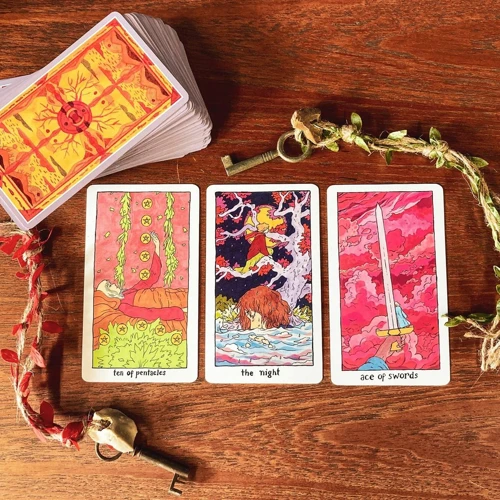
Intuition, often described as a mysterious sixth sense, is a fascinating aspect of human cognition that defies logical explanations. It is that inexplicable feeling or insight that arises within us, guiding our decisions and actions without conscious reasoning. Intuition has been defined as the ability to understand or know something instinctively, without the need for conscious thought. It is a deeply ingrained aspect of our consciousness and plays a significant role in our daily lives. Whether it’s trusting our intuition in personal relationships or navigating complex situations, intuition holds an important place in our decision-making process. However, it is important to distinguish intuition from psychic abilities, as they are separate phenomena with different characteristics. To better understand intuition and develop it, there are various exercises and practices that can be implemented. Cultivating self-awareness and mindfulness can help enhance our intuitive abilities, allowing us to tap into our inner wisdom and make better decisions.
Definition of intuition
Definition of intuition: Intuition can be understood as a natural and automatic process of acquiring knowledge or insight without the need for conscious reasoning. It is often described as a “gut feeling” or a sense of knowing that arises within us. While it may seem elusive and difficult to define, intuition is a distinct cognitive ability that operates beyond conscious awareness. It involves perceiving and processing information at a subconscious level, allowing us to make decisions and judgments based on our inherent knowledge and experiences. Intuition is not based on logical analysis or external evidence, but rather on a deep understanding that arises from within. It can provide valuable insights and guidance in various aspects of life, including personal relationships, where trusting our intuition can help us navigate complex dynamics and make intuitive choices. Understanding the definition of intuition helps us appreciate its role in our lives and recognize its power as a decision-making tool. To further explore the depths of intuition and its distinctions from psychic abilities, we can delve into specific examples and studies that shed light on this unique aspect of human cognition. For practical purposes, there are exercises and practices that can be employed to cultivate and enhance our intuition, allowing us to tap into this innate ability and make more informed choices in our lives.
Role of intuition in daily life
In our daily lives, intuition plays a significant role in guiding our decisions and actions. It serves as a powerful tool that helps us navigate through various situations, both big and small. Intuition allows us to tap into our subconscious knowledge and experiences, providing us with insights and guidance that may not be immediately apparent through conscious reasoning. It often helps us make quick decisions in fast-paced environments or when faced with limited information. For example, when meeting new people, our intuition can provide us with a sense of trust or caution, influencing our interactions and relationships. It can also guide us in making important life choices, such as career decisions, by providing a gut feeling about which path feels right. Intuition aids in problem-solving, enabling us to access innovative ideas and solutions by tapping into our subconscious reservoir of knowledge. While intuition can be invaluable, it is essential to strike a balance with reasoning and critical thinking to avoid potential biases and errors. By leveraging our intuition and combining it with logical analysis, we can make well-rounded and informed decisions. To further explore the role of intuition in personal relationships, you can refer to this article.
The Neuroscience of Intuition
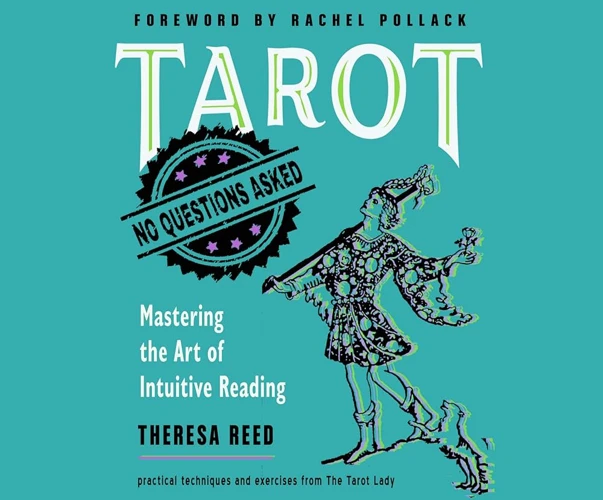
The neuroscience of intuition unravels the intricate workings of our brain and sheds light on the underlying mechanisms behind this enigmatic phenomenon. Instinctive processing in the brain plays a crucial role in the formation of intuitive insights. It involves the rapid evaluation and synthesis of vast amounts of information by our subconscious mind, bypassing conscious awareness. Various brain areas are involved in the intuitive process, such as the amygdala, which processes emotions and evaluates potential threats, and the prefrontal cortex, which integrates information and aids in decision-making. Additionally, the gut-brain connection has emerged as a significant factor in understanding intuition. The enteric nervous system, often referred to as the “second brain,” communicates bidirectionally with the brain, influencing our intuitions. Emerging research suggests that gut bacteria may play a role in modulating our intuitive abilities. By unraveling the complex neural networks and understanding the interplay between different brain regions, scientists are gradually uncovering the secrets of intuition and its profound impact on human cognition and decision-making.
Instinctive processing in the brain
Instinctive processing in the brain refers to the automatic and rapid analysis of sensory information without conscious awareness or deliberate thought. It is a key aspect of how intuition works. The brain has evolved to quickly process incoming sensory data and make split-second decisions based on past experiences and stored information. This instinctive processing occurs primarily in the amygdala, which is a part of the brain responsible for emotional responses and threat detection. The amygdala is highly connected to other brain areas, such as the prefrontal cortex and the hippocampus, allowing for the integration of emotional and cognitive information. The amygdala’s role in intuition is believed to be linked to its ability to quickly assess potential dangers and trigger intuitive responses based on past experiences or perceived threats. Additionally, the insula, another brain region involved in processing emotions and bodily sensations, also contributes to the instinctive processing of intuitive information. This intricate network of brain areas involved in instinctive processing allows for rapid assessment and response to stimuli, often bypassing conscious thought. Understanding the neuroscience behind instinctive processing provides insight into how intuition operates in the brain and sheds light on the remarkable speed and accuracy of intuitive decision-making. To learn more about the differences between intuition and psychic abilities, check out this article. If you’re interested in cultivating and enhancing your intuition, there are various exercises and practices available. Explore this resource to discover techniques for tapping into your intuitive potential.
Brain areas involved in intuition
The process of intuition involves the intricate workings of various brain areas. include the prefrontal cortex, the anterior insula, and the amygdala. The prefrontal cortex, located at the front of the brain, is responsible for executive functions, such as decision-making, planning, and problem-solving. It plays a crucial role in integrating information from different sensory modalities and generating intuitive insights. The anterior insula, which lies deep within the brain, is associated with self-awareness and subjective feelings. It helps process bodily sensations and emotional states, contributing to our intuitive sense. The amygdala, known for its role in emotional processing, also plays a part in intuition. It helps assess the emotional significance of stimuli and aids in the rapid evaluation of situations. These brain areas work in harmony to enable intuitive thinking and decision-making. Understanding the specific roles of these brain regions contributes to our overall understanding of the science behind intuition and how it manifests in our daily lives.
The Gut-Brain Connection

The gut-brain connection is a fascinating area of study when it comes to understanding the workings of intuition. It focuses on the intricate relationship between our gut and our brain, and how they communicate with each other to influence our thoughts, emotions, and even decision-making processes. The enteric nervous system, often referred to as the “second brain,” is a complex network of neurons that resides in our gut. This network is capable of independent decision-making and is in constant communication with our central nervous system. Additionally, the gut is home to trillions of gut bacteria, collectively known as the gut microbiota, which play a crucial role in various bodily functions, including cognitive processes. Emerging research suggests that the gut microbiota can modulate brain function and influence our emotions and behaviors. The gut-brain connection provides a possible explanation for the strong link between our gut feelings and intuition. It serves as a reminder that our bodies and minds are intricately connected, with our gut playing a significant role in shaping our intuitive experiences.
Enteric nervous system and intuition
The enteric nervous system (ENS) is often referred to as the “second brain” due to its complexity and the significant role it plays in our overall well-being. This intricate network of neurons is located in the lining of our gastrointestinal tract, extending from the esophagus to the rectum. While traditionally associated with digestion and regulating gastrointestinal functions, emerging research suggests a strong connection between the enteric nervous system and intuition.
The ENS contains millions of neurons that communicate with each other and with the central nervous system, forming a bidirectional line of communication. This means that information can be exchanged between the gut and the brain. The ENS has its own neural circuitry and is capable of independent decision-making, influencing our behavior and responses. This raises the possibility that the gut may play a significant role in our intuitive abilities.
The gut-brain axis serves as the connection between the enteric nervous system and the central nervous system, facilitating the flow of information between the two. Through this axis, signals and messages are transmitted, allowing for the intuitive processing of information. The enteric nervous system receives sensory input from the gut and sends signals to the brain, contributing to our intuitive responses.
The ENS contains various neurotransmitters and hormones, including serotonin, dopamine, and oxytocin, which are not only involved in regulating digestion but also have profound effects on our mood and emotions. These chemicals have been linked to intuitive insights, as they can influence our emotional responses and decision-making processes.
Research has shown that disruptions in the gut-brain axis, such as imbalances in gut bacteria or intestinal inflammation, can affect our cognitive functions, emotional well-being, and decision-making abilities. This highlights the intricate relationship between the enteric nervous system and intuition.
While the exact mechanisms behind the connection between the enteric nervous system and intuition are still being explored, the emerging understanding of the gut-brain axis provides valuable insights into the neural basis of our intuitive abilities. Further research and exploration of this fascinating relationship have the potential to deepen our understanding of intuition and its underlying mechanisms.
The role of gut bacteria
Gut bacteria, also known as gut microbiota, play a significant role in our overall health and well-being. But did you know that they also have an impact on our intuition? Research suggests that the presence of certain gut bacteria can influence our cognitive processes, including intuition. The gut is often referred to as our “second brain” because it is home to a complex network of neurons known as the enteric nervous system (ENS). The ENS communicates with the brain through a bidirectional pathway, known as the gut-brain axis. This communication allows for the exchange of information between the gut and brain, influencing various aspects of our mental and emotional states. The gut microbiota, composed of trillions of microorganisms, play a vital role in maintaining the health of the gut-brain axis. These bacteria produce neurotransmitters such as serotonin, dopamine, and GABA, which are involved in regulating mood, emotions, and cognitive functions. The composition of gut bacteria can vary from person to person, and studies have found a correlation between specific bacterial strains and behaviors related to intuition. For example, certain strains of gut bacteria have been associated with increased cognitive flexibility and the ability to quickly process and respond to information, which are key components of intuition. While the exact mechanisms of how gut bacteria influence intuition are still being explored, it is clear that maintaining a healthy gut microbiome through a balanced diet, regular exercise, and probiotic supplementation may positively impact our intuitive abilities. So, next time you trust your gut feeling, remember that your gut bacteria could be playing a part in guiding your intuition.
Intuition and Pattern Recognition

Intuition and pattern recognition go hand in hand, as our brains are wired to detect and process patterns in our environment. Pattern recognition is the ability to identify and make sense of recurring sequences or arrangements. Our brains are constantly gathering information from our surroundings and forming connections. These connections allow us to recognize patterns and make intuitive judgments based on our past experiences. Intuition can be seen as a rapid form of pattern recognition, where our brains quickly analyze the available information and generate a response or decision without conscious awareness. This ability to recognize patterns is shaped by our past experiences, knowledge, and expertise. It allows us to make quick assessments and judgments, even in situations where we may not have all the explicit information. However, it is important to note that intuition is not infallible and can be influenced by biases or incomplete information. Nonetheless, the interplay between intuition and pattern recognition provides us with an efficient and adaptive way of navigating the world around us.
Pattern recognition in the brain
Pattern recognition is a fundamental cognitive process that enables our brain to identify and make sense of the world around us. It involves the ability to detect regularities, similarities, and meaningful relationships among various stimuli. In the context of intuition, pattern recognition in the brain plays a crucial role. Our brain is exceptionally adept at recognizing patterns and extracting information from them, even when we are not consciously aware of it. This process occurs in different regions of the brain, such as the prefrontal cortex and the parietal cortex, which are involved in processing sensory information and making sense of it. Through pattern recognition, our brain can quickly and efficiently analyze complex data and make intuitive judgments. This ability is rooted in the brain’s ability to process vast amounts of information simultaneously and identify underlying patterns and connections. It allows us to navigate the world, make quick decisions, and predict outcomes based on our previous experiences and accumulated knowledge. By recognizing patterns, our brain can generate intuitive insights and guide our decision-making process.
Intuition as a rapid processing of patterns
Intuition can be understood as a rapid processing of patterns within the brain. Our brains are incredibly efficient at recognizing patterns, even when we are not consciously aware of it. allows us to make quick judgments and decisions based on our previous experiences and knowledge. It is a subconscious process that draws on the accumulation of information stored in our brains. When faced with a situation or problem, our brains automatically search for familiar patterns and match them to similar experiences from the past. This rapid pattern recognition enables us to quickly generate insights and make intuitive judgments without going through a step-by-step analytical process. It is as if our brains have developed a mental database of patterns, which allows us to access relevant information and come to conclusions instinctively. This ability to process patterns rapidly can be especially useful in situations where time is limited or when making quick decisions based on a wealth of information. Intuition as a rapid processing of patterns is an essential cognitive process that helps us navigate the complexities of life and make intuitive choices that often lead to successful outcomes.

Social and emotional cues play a significant role in our intuitive responses and decision-making processes. Unconscious recognition of social cues is a fascinating aspect of intuition, where our brains automatically pick up on subtle nonverbal cues such as body language, facial expressions, and tone of voice. These cues provide valuable information that our conscious mind may not fully register, yet our intuitive instincts can interpret and guide us in understanding people’s intentions and emotions. Moreover, emotional signals are intricately linked to our intuition. Our emotions serve as powerful indicators and inform our intuitive responses. For instance, when we encounter a situation that elicits a sense of unease or discomfort, our intuition may signal that something is amiss. These emotional cues help us navigate social interactions and make better decisions based on the underlying emotional energy of a situation. By paying attention to these social and emotional cues, we can tap into the power of our intuition and make more informed choices in our personal and professional lives.
Unconscious recognition of social cues involves the ability of our subconscious mind to pick up on subtle signals and nonverbal communication from others. Our brains are remarkably adept at processing social information, even when we are not consciously aware of it. Research has shown that our brains can unconsciously detect and interpret facial expressions, body language, tone of voice, and other subtle cues that convey emotions, intentions, and social dynamics. These unconscious social cues play a crucial role in our intuitive responses to people and situations. For example, we may instantly feel a sense of trust or unease around someone without being able to pinpoint exactly why. This intuitive response is often based on our brain’s remarkable ability to unconsciously process and analyze a wide range of social cues. It is believed that this unconscious recognition of social cues is deeply rooted in our evolutionary history, as humans have relied on social interactions for survival and cooperation. By paying attention to these subtle social cues, our intuition guides us in forming impressions, making judgments, and navigating social interactions.
Emotional signals and intuitive responses
Emotional signals play a crucial role in our intuitive responses. Our emotions are powerful messengers that provide valuable information and influence our decision-making process. When it comes to intuition, emotional signals serve as important cues that guide our intuitive responses. Our subconscious mind may pick up on subtle emotional cues from the environment or others, even when we are not consciously aware of them. This can manifest as a feeling of discomfort or unease when something doesn’t feel right, or a sense of excitement and enthusiasm when we are drawn to a particular option. These emotional signals help us navigate complex social situations and make quick judgments. For example, if we feel a sense of trust and warmth towards someone we’ve just met, it may indicate that our intuition is picking up on positive emotional cues from that person. On the other hand, if we feel a sense of apprehension or unease, our intuition may be alerting us to potential danger or a mismatch in intentions. By paying attention to emotional signals and honing our ability to interpret them, we can make more informed and intuitive decisions.
Intuition and Experience
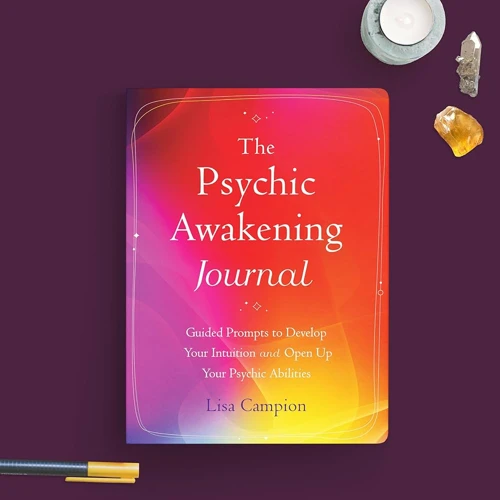
Intuition and experience go hand in hand, shaping our decision-making process and guiding our actions. Accumulated knowledge serves as the foundation for intuitive decision-making. Our past experiences, learnings, and observations provide us with a wealth of information that can be implicitly accessed by our intuition. It is through our experiences that we develop a deep understanding of patterns and trends, allowing us to recognize familiar situations and make rapid assessments. Experts in various fields often rely heavily on their intuition, honed through years of deliberate practice. This expert intuition is a result of extensive experience and mastery, enabling individuals to make quick, accurate, and insightful decisions. However, it is important to note that intuition should not be solely based on personal experience, as biases and limited perspectives can cloud our intuitive judgments. By combining both accumulated knowledge and a mindful approach, we can harness the power of intuition and make better-informed choices.
Accumulated knowledge and intuitive decision-making
go hand in hand when it comes to harnessing the power of intuition. Our brain accumulates a vast amount of knowledge and experiences throughout our lives. This wealth of information becomes deeply embedded in our subconscious mind and forms the basis for our intuitive abilities. When faced with a decision or problem, our intuition draws upon this stored knowledge to provide us with instant insights and valuable guidance. It taps into patterns and connections that our conscious mind may not be fully aware of, allowing us to make decisions that feel right even when we can’t explain why. This is often referred to as “expert intuition”, where individuals who have specialized knowledge and expertise in a particular field can make rapid and accurate intuitive decisions based on their deep understanding and experience. It is worth noting that intuitive decision-making should not be solely relied upon, as it is always beneficial to supplement it with logical analysis and critical thinking to achieve the most informed decisions. By combining accumulated knowledge with intuitive insights, we can tap into the full potential of our decision-making abilities.
Expert intuition and deliberate practice
Expert intuition refers to the intuitive decision-making abilities developed by individuals who have acquired extensive knowledge and experience in a specific domain. Through deliberate practice and years of dedicated effort, experts in various fields develop a deep understanding of patterns, contexts, and nuances that may not be readily apparent to the average person. This level of expertise allows them to make quick and accurate decisions based on their intuitive insights. Deliberate practice, a concept popularized by psychologist Anders Ericsson, involves purposeful and focused efforts to improve specific skills. By pushing themselves beyond their comfort zones and continually challenging themselves with new and demanding tasks, experts refine their intuitive abilities.
- Experts in medicine, for example, can often diagnose a patient’s condition accurately, seemingly effortlessly. This intuitive diagnosis is a result of years of studying medical textbooks, conducting countless patient examinations, and gaining exposure to a wide range of medical cases. Their accumulated knowledge and experience allow them to recognize subtle patterns and make intuitive judgments based on their gut feelings.
- Similarly, professional athletes rely on their expert intuition to make split-second decisions on the field. A basketball player’s ability to predict the trajectory of a free throw or a soccer player’s instinctive positioning during a game is a result of years of training and experience. These athletes have developed an intuitive sense of timing and spatial awareness, allowing them to make quick decisions without conscious deliberation.
- Experts in creative fields, such as artists or musicians, also rely heavily on their intuition. Through years of practice and exploration, they develop an intuitive sense of composition, color theory, or musicality that guides their creative decisions. This intuitive understanding enables them to produce remarkable work that resonates with their audience.
Expert intuition is not purely guesswork or luck; it is a finely honed skill that incorporates both conscious and unconscious processes. It relies on a vast repository of knowledge and experience stored in the expert’s mind, which allows for rapid pattern recognition and the generation of intuitive insights. Deliberate practice is crucial in cultivating and enhancing expert intuition, as it allows individuals to continuously refine their skills, gain deeper insights, and make sophisticated intuitive decisions within their domain of expertise.
Scientific Studies on Intuition
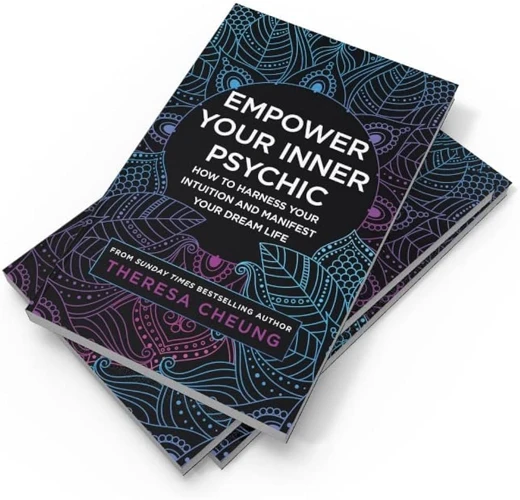
Scientific studies on intuition have shed light on the fascinating workings of this innate human ability. Researchers have conducted numerous experiments to explore the validity and reliability of intuitive decision-making. These studies have provided evidence supporting the existence and effectiveness of intuition in various domains. Experimental research on intuition has involved tasks such as predicting outcomes, problem-solving, and intuitive judgments. Findings have shown that individuals often perform better when relying on their intuition, especially in time-constrained situations where conscious reasoning may be impractical. This suggests that intuition is not only a subjective feeling but also a valuable cognitive process. While some skeptics question the reliability of intuition, these scientific studies lend credibility to its existence and demonstrate its potential benefits when used appropriately. Understanding the scientific findings can help us appreciate and harness the power of intuition in our decision-making processes.
Experimental research on intuition
Experimental research on intuition has provided valuable insights into understanding the mechanics behind this intriguing phenomenon. Scientists have conducted numerous studies to unravel the complexities of intuition and explore its validity. These experiments often involve presenting participants with various scenarios or tasks that require intuitive decision-making. By analyzing participants’ responses and measuring their accuracy, researchers can assess the effectiveness of intuition in different contexts.
One example of experimental research on intuition is the Iowa Gambling Task. This task involves participants playing a card game where they have to select cards from different decks to maximize their winnings. Unknown to the participants, some decks are advantageous in the long run, while others lead to losses. Through consecutive trials, participants begin to develop a gut feeling or hunch about which decks to choose, even before they are consciously aware of the rules. This study demonstrated the power of intuition in complex decision-making scenarios.
In another study, researchers used brain imaging techniques such as functional magnetic resonance imaging (fMRI) to examine the neural mechanisms underlying intuitive processing. Participants were shown images or stimuli, and their brain activity was monitored during intuitive decision-making tasks. The findings suggested that intuitive judgments are related to activity in brain regions associated with emotional processing and unconscious pattern recognition.
Experimental research has also explored the role of context and expertise in intuition. For example, studies have examined the intuitive abilities of experts in various fields, such as chess players or firefighters. These experts often demonstrate superior intuitive skills compared to novices, as their extensive experience and accumulated knowledge allow them to quickly recognize relevant patterns and make accurate intuitive decisions.
Experimental research on intuition provides valuable scientific evidence supporting the existence and effectiveness of intuitive abilities. Through carefully designed experiments and analysis of data, scientists have shed light on how intuition operates in the human brain and its potential for guiding decision-making processes. These studies contribute to our understanding of the intricacies of intuition and its practical applications in various domains.
Findings and evidence supporting intuitive abilities
Scientific research has provided fascinating findings and compelling evidence that support the existence and validity of intuitive abilities. One such study conducted by researchers at the University of Amsterdam explored the accuracy of intuitive judgments in predicting outcomes of complex economic decisions. The participants were found to possess a remarkable ability to accurately predict the outcome even when they could not explicitly explain their reasoning process. This indicates that intuition operates on a subconscious level, drawing on accumulated knowledge and unconscious pattern recognition.
Another study published in the journal Psychological Science investigated the accuracy of intuitive judgments in assessing trustworthiness. The findings revealed that participants were able to assess trustworthiness with high accuracy within milliseconds of exposure to someone’s face. This suggests that our intuitive abilities extend beyond conscious reasoning and allow us to make rapid assessments based on subtle cues and information.
Research conducted at the University of Chicago explored the role of intuitive decision-making in experts, such as firefighters and chess players. The results indicated that experienced individuals relied heavily on intuition when faced with time-constrained situations, suggesting that intuition plays a crucial role in expert performance.
These studies, along with numerous others in the field, provide compelling evidence that intuitive abilities are real and can significantly impact decision-making processes. They highlight the power of intuition in tapping into our unconscious knowledge and rapidly processing information to reach accurate conclusions. However, it is vital to note that intuition is not infallible and can be influenced by biases or errors. It should be used in conjunction with logical reasoning and critical thinking for optimal decision-making outcomes.
Controversies and Limitations

Despite the intriguing nature of intuition, it has not been without controversy and its fair share of limitations. Controversies and limitations surrounding intuition stem from skepticism and the challenge of objectively measuring and studying such a subjective phenomenon. Some skeptics argue that intuition is merely based on biases and heuristics, leading to flawed decision-making. Additionally, relying solely on intuition can lead to oversights and errors, as it is not always accurate or reliable. Intuition can be influenced by personal emotions and biases, potentially clouding one’s judgment. It is crucial to recognize these limitations and apply a balanced approach that incorporates both intuition and rational thinking when making important decisions. While intuition can provide valuable insights, it should be used in conjunction with critical thinking and empirical evidence to mitigate potential pitfalls.
Skeptical perspectives on intuition
While intuition is often regarded as a valuable tool, there are skeptics who question its reliability and validity. Skeptical perspectives on intuition suggest that it may be nothing more than a result of cognitive biases, emotional influences, or sheer coincidence. These skeptics argue that relying solely on intuition can lead to irrational decision-making and errors in judgment. They maintain that intuition lacks concrete evidence and is based on subjective experiences, making it difficult to distinguish between genuine intuitive insights and mere guesswork.
One critique of intuition is that it may be influenced by various cognitive biases, such as confirmation bias or availability bias. Confirmation bias refers to the tendency to seek out and interpret information in a way that confirms preexisting beliefs or biases, potentially leading to distorted perceptions and faulty decision-making. Availability bias, on the other hand, refers to the tendency to rely on readily available information or examples that come to mind easily, which may not always be the most accurate or representative.
Another skeptical viewpoint suggests that intuitive judgments can be clouded by emotions. Emotions may unconsciously influence our perception and evaluation of situations or individuals, leading to biased or inaccurate intuitive responses. This emotional influence can potentially undermine the objectivity and reliability of intuitive decision-making.
Finally, skeptics argue that intuitive experiences can often be attributed to mere coincidences or chance occurrences. Sometimes, what may seem like an intuitive insight could be a result of random events aligning, creating an illusion of intuition. This perspective highlights the need for critical thinking and empirical evidence when evaluating the claims and accuracy of intuitive experiences.
Limitations and pitfalls of relying solely on intuition
While intuition can be a valuable tool in decision-making, it is essential to recognize its limitations and the potential pitfalls of relying solely on it. One major limitation is that intuition is subjective and influenced by personal biases and experiences. Our intuition is shaped by our beliefs, values, and past experiences, which can sometimes lead to biased or inaccurate judgments. Additionally, relying solely on intuition can overlook crucial information or logical reasoning. Intuition often operates on a subconscious level and may not take into account all relevant facts or consider alternative perspectives. It is important to strike a balance between intuition and rationality to make well-rounded decisions. Another pitfall of relying solely on intuition is that it may not always be reliable or accurate, particularly in complex or unfamiliar situations. Intuition is built upon patterns and associations formed from past experiences, and in novel situations, these patterns may not accurately apply. It is crucial to complement intuition with critical thinking, analysis, and gathering of objective information. By integrating intuitive insights with logical reasoning, we can avoid the limitations and pitfalls of relying solely on intuition and make more informed and balanced decisions.
Developing and Enhancing Intuition
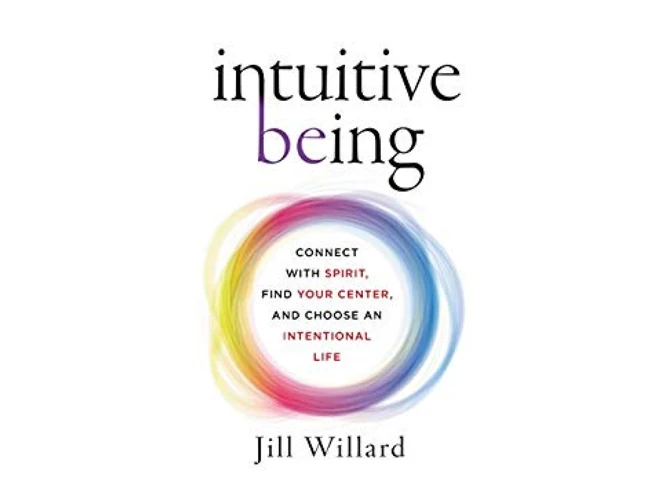
Developing and enhancing intuition is not a matter of unlocking a magical power, but rather a process of cultivating self-awareness and mindfulness. Training exercises and techniques can help sharpen our intuition and allow us to tap into our inner wisdom. One effective technique is meditation, as it helps quiet the mind and create a space for intuitive insights to arise. Mindfulness practices, such as paying attention to our senses and embracing the present moment, can also enhance our awareness and receptivity to intuitive nudges. Another approach is journaling, where we can reflect on past intuitive experiences and track patterns or recurring themes. Additionally, seeking experiences outside of our comfort zone and exposing ourselves to diverse perspectives can broaden our perspective and enhance our intuitive abilities. It is important to note that developing intuition is a personal journey, and what works for one person may differ from another. With practice and patience, we can cultivate a deeper connection with our intuition and harness its power to make more informed decisions in all aspects of our lives.
Training exercises and techniques
When it comes to enhancing intuition, there are several training exercises and techniques that can be employed. One commonly used technique is meditation. Through meditation, individuals can quiet their minds, cultivate inner stillness, and develop a heightened sense of awareness. This practice helps to access the intuitive wisdom that lies within. Another effective exercise is journaling. By keeping a journal, individuals can record their thoughts, feelings, and experiences. This process of self-reflection can help uncover patterns and insights that may not be immediately apparent. Additionally, visualization exercises can be beneficial in enhancing intuition. This involves picturing a specific situation or outcome and paying attention to the feelings and sensations that arise. By repeatedly engaging in visualization exercises, individuals can strengthen their ability to tap into their intuitive guidance. Intuitive card reading is another technique that some find helpful. Using decks of cards with symbolic imagery, individuals can tune into their intuition and interpret the messages they receive. Finally, mindfulness practices such as breathing exercises and body scans can also support the development of intuition. By grounding oneself in the present moment, individuals can become more attuned to their intuitive signals. Incorporating these training exercises and techniques into one’s routine can serve as a powerful tool for strengthening intuition and harnessing its benefits.
Cultivating self-awareness and mindfulness
Cultivating self-awareness and mindfulness is key in enhancing our intuitive abilities. By practicing self-awareness, we become more attuned to our thoughts, emotions, and sensations, allowing us to better understand ourselves and our intuitive signals. One effective technique is meditation, which involves focusing our attention on the present moment and observing our thoughts and feelings without judgment. This practice helps quiet the noise in our minds and enables us to access our intuition more easily. Another way to cultivate self-awareness is through journaling, where we can freely express our thoughts and emotions, gaining insights into our intuition. Additionally, engaging in activities that promote mindfulness, such as yoga or tai chi, can increase our overall awareness and presence, helping us tap into our intuitive knowing. It’s important to create a regular practice of self-reflection and mindfulness to deepen our connection with our intuition and harness its power in our decision-making process.
Intuition in Different Cultures

Intuition is not only influenced by individual experiences and biology but also shaped by cultural factors. Intuition in different cultures varies, as each society has its own belief systems and values that influence how intuition is understood and utilized. Cultural variations in intuitive thinking can be seen in the different ways people interpret and trust intuitive signals. Some cultures place a strong emphasis on intuition and view it as a valuable source of knowledge and decision-making, while others may prioritize analytical thinking and rationality. Historical and societal perspectives on intuition also play a role in shaping cultural attitudes. Exploring these cultural variations can provide valuable insights into the diverse ways intuition is perceived and applied around the world. It highlights the intricate relationship between intuition and culture, shedding light on how this innate cognitive ability manifests differently in various social and cultural contexts.
Cultural variations in intuitive thinking
Cultural variations in intuitive thinking shed light on how different societies perceive and use intuition in their daily lives. Intuitive thinking can be influenced by cultural norms, values, and beliefs, resulting in unique manifestations of this cognitive process across cultures. For example, in some indigenous cultures, intuitive thinking is deeply intertwined with spirituality and connection to nature. This perspective emphasizes the importance of intuition in decision-making and problem-solving, often seeking guidance from ancestors or spirits. On the other hand, in Western cultures, intuition is often seen as a complementary tool to logical reasoning, valued in creative fields such as art and design. There may also be cultural differences in the extent to which intuition is trusted or valued as a valid source of knowledge. Some cultures may prioritize collective decision-making processes, whereas others may place more emphasis on individual intuitive insights. These cultural variations highlight the diverse ways in which intuition is integrated into different societies and the impact it has on their perception of reality and decision-making processes. Understanding these cultural variations can provide invaluable insights into the role and significance of intuition across different cultures and further our understanding of this complex cognitive process.
Historical and societal perspectives on intuition
Throughout history, intuition has been a subject of intrigue and fascination for various cultures and societies. reveal a diverse range of beliefs and interpretations of this phenomenon. In ancient civilizations such as Egypt and Greece, intuition was often linked to divine guidance and considered a source of wisdom. Philosophers like Plato and Socrates emphasized the importance of intuition in obtaining knowledge beyond what can be attained through sensory perception or rational thinking. Similarly, Eastern philosophies such as Taoism and Buddhism recognized the significance of intuitive insights in spiritual awakening and enlightenment. In indigenous cultures, intuition was seen as a sacred gift, connecting individuals to the natural world and their ancestors. However, historical and societal perspectives on intuition have not always been favorable. During the Enlightenment period, intuition faced criticism from rationalist thinkers who valued reason and empirical evidence over intuitive knowledge. It was seen as unreliable and subjective, often dismissed in favor of scientific inquiry. However, in recent years, there has been a resurgence of interest in intuition, with a growing acceptance of its value in decision-making and problem-solving. As our understanding of intuition continues to evolve, it is important to acknowledge and explore the historical and societal influences that have shaped our perceptions of this innate human ability.
Practical Applications of Intuition
Intuition is not just a fascinating cognitive process, but it also holds practical applications in our everyday lives. Using intuition in decision-making can lead to better outcomes, as it allows us to tap into our subconscious knowledge and insights. It can help us navigate complex situations where there is limited information or time to analyze. Additionally, intuition is highly valuable in creative endeavors. By tapping into our intuitive insights, we can enhance creativity and think outside the box. Intuition can provide us with fresh perspectives, novel ideas, and innovative solutions. Whether it’s in business, art, or problem-solving, embracing and utilizing intuition can lead to remarkable breakthroughs and success. It is important, however, to strike a balance between intuition and rational thinking, as relying solely on intuition can have its limitations. By combining intuitive insights with critical analysis, we can make informed decisions and achieve optimal results in various aspects of our lives.
Using intuition in decision-making
Using intuition in decision-making is a powerful tool that can provide valuable insights and guidance. In many situations, relying solely on rational analysis may not be sufficient, and intuition can offer a complementary perspective. Intuition allows us to tap into our subconscious knowledge and quickly assess a situation based on patterns, experiences, and gut feelings. When using intuition in decision-making, it is important to strike a balance by integrating both rational thinking and intuitive insights. This can be achieved by following a systematic approach:
1. Recognize the decision at hand: Identify the specific decision that needs to be made. Is it related to a personal or professional matter? Understanding the context will help in determining which aspects of intuition are relevant.
2. Gather relevant information: Engage in thorough research and gather all available information related to the decision. This includes both factual data and intuitive signals such as gut feelings or hunches.
3. Tune in to your intuition: Create a calm and receptive mindset that allows your intuition to flow. Pay attention to any intuitive signals or insights that arise during the decision-making process.
4. Reflect and validate: After considering your intuitive insights, take a step back and reflect on how they align with the gathered information. Ask yourself whether the intuitive guidance complements or contradicts the rational analysis.
5. Consider the potential outcomes: Evaluate the potential outcomes of your decision based on both rational analysis and intuitive insights. Trust your intuition, but also consider the impact of your decision on various aspects of your life.
6. Take action: Finally, make a decision and take action based on the synthesis of rational analysis and intuition. Trust your instincts, knowing that you have carefully considered both perspectives.
It is important to note that while intuition can be a powerful tool, it is not infallible. There may be instances where relying solely on intuition may lead to suboptimal outcomes. It is advisable to use intuition as one aspect of decision-making, alongside critical thinking, information gathering, and analysis. By embracing and leveraging the power of intuition, we can make more informed and holistic decisions in various aspects of our lives.
Enhancing creativity through intuitive insights
Enhancing creativity through intuitive insights is a powerful way to unlock our imaginative potential and discover innovative solutions. When we tap into our intuition, we access a deep well of subconscious knowledge and connections that can fuel our creative thinking. This process allows us to think outside the box and see possibilities that may not be apparent through rational analysis alone. Intuitive insights often arise from patterns and connections that our conscious mind may not have consciously recognized. By trusting our intuition, we can break free from conventional thinking and embrace novel approaches to problem-solving. Whether it’s in the realm of art, writing, design, or any creative endeavor, intuitive insights can lead to groundbreaking ideas and breakthroughs. To enhance creativity through intuition, it’s important to cultivate an open and receptive mindset. Practicing techniques such as mindfulness, meditation, and free-flowing brainstorming can help quiet the noise of our analytical mind and allow intuitive insights to rise to the surface. Additionally, embracing curiosity, embracing risk, and being open to experimentation can further foster a creative environment where intuition can thrive. By harnessing the power of intuitive insights, we can unlock new levels of creativity and bring fresh, original ideas to life.
Conclusion
To conclude, the exploration of intuition has shed light on the intricacies of this fascinating phenomenon. Through understanding the science behind intuition, it becomes apparent that it is more than just a mere hunch or guess. Intuition is a complex interplay of instinctive processing in the brain, the gut-brain connection, pattern recognition, social and emotional cues, and accumulated knowledge and experience. Scientific studies have provided evidence supporting the existence and accuracy of intuitive abilities. However, controversies and limitations also surround the topic, and it is essential to approach intuition with caution and not rely solely on it for decision-making. Cultivating and enhancing intuition is possible through training exercises, self-awareness, and mindfulness practices. Intuition also exhibits cultural variations, highlighting the influence of society and history. In practical applications, intuition can be a powerful tool for decision-making and enhancing creativity. As we conclude our journey into the science behind intuition, we are left with a sense of wonder and appreciation for this enigmatic human ability. It reminds us that there is still much to discover and unravel when it comes to the complexities of the mind and consciousness. So, let us embrace our intuition and harness its power to navigate through life’s challenges and uncover new realms of knowledge and understanding.
Frequently Asked Questions
What is the difference between intuition and instinct?
Although intuition and instinct are often used interchangeably, there are subtle differences between the two. Instinct is an innate, automatic, and unlearned response to a stimulus, while intuition is a subconscious understanding or insight that arises without conscious reasoning. Instinct is more closely associated with survival behaviors, while intuition encompasses a broader range of cognitive processes.
Can intuition be trusted?
While intuition can be a valuable tool in decision-making, it is important to exercise caution and consider other factors as well. Intuition is based on subconscious processes and can be influenced by biases and emotions. It is best to combine intuitive insights with rational thinking and evidence-based information to make well-rounded decisions.
Is intuition a form of psychic ability?
No, intuition and psychic abilities are distinct phenomena. Intuition is a natural cognitive process that everyone possesses, allowing them to tap into their subconscious understanding. Psychic abilities, on the other hand, involve accessing supernatural or paranormal information beyond the scope of ordinary perception.
Can intuition be developed?
Yes, intuition can be developed and enhanced through practice. Engaging in activities such as meditation, journaling, and mindfulness exercises can help cultivate self-awareness and attune oneself to intuitive insights. Additionally, paying attention to gut feelings and reflecting on past experiences can strengthen intuitive abilities over time.
How does intuition relate to pattern recognition?
Pattern recognition plays a crucial role in intuition. Our brains are adept at recognizing and processing patterns, and intuition often involves the rapid subconscious processing of these patterns. Intuition allows us to make quick and accurate judgments based on our accumulated knowledge and experiences.
Can intuition be used in professional decision-making?
Absolutely! Intuition can be valuable in professional decision-making as it can provide insights and guide quick decision-making in complex situations. However, relying solely on intuition without considering other factors or gathering additional information may lead to biased or incomplete decisions. It’s important to strike a balance between intuitive insights and rational analysis.
Are there any scientific studies on intuition?
Yes, there is a growing body of scientific research exploring the nature and mechanisms of intuition. Researchers conduct experiments to better understand how intuition works, its neural correlates, and its influence on decision-making. These studies contribute to our understanding of intuition and its potential applications.
Can cultural background affect intuitive thinking?
Absolutely! Cultural background can influence the way individuals perceive, interpret, and trust their intuitive insights. Different cultures may prioritize different cognitive processes and rely more or less on intuitive thinking. Understanding the cultural context can provide insights into how intuition is valued and utilized in different societies.
Is there a downside to relying solely on intuition?
While intuition can be a powerful asset, it is important to acknowledge its limitations. Relying solely on intuition without evidence-based reasoning or without considering alternative perspectives can lead to biases and flawed decision-making. It is best to integrate intuitive insights with critical thinking and gather relevant information before making important decisions.
How can intuition enhance creativity?
Intuition and creativity are closely intertwined. Intuitive insights can guide innovative thinking by providing unexpected connections and unconventional ideas. By tapping into our intuitive abilities, we can access new perspectives, break through creative blocks, and generate fresh and original ideas. Intuition can be a valuable tool for nurturing and enhancing our creative endeavors.

